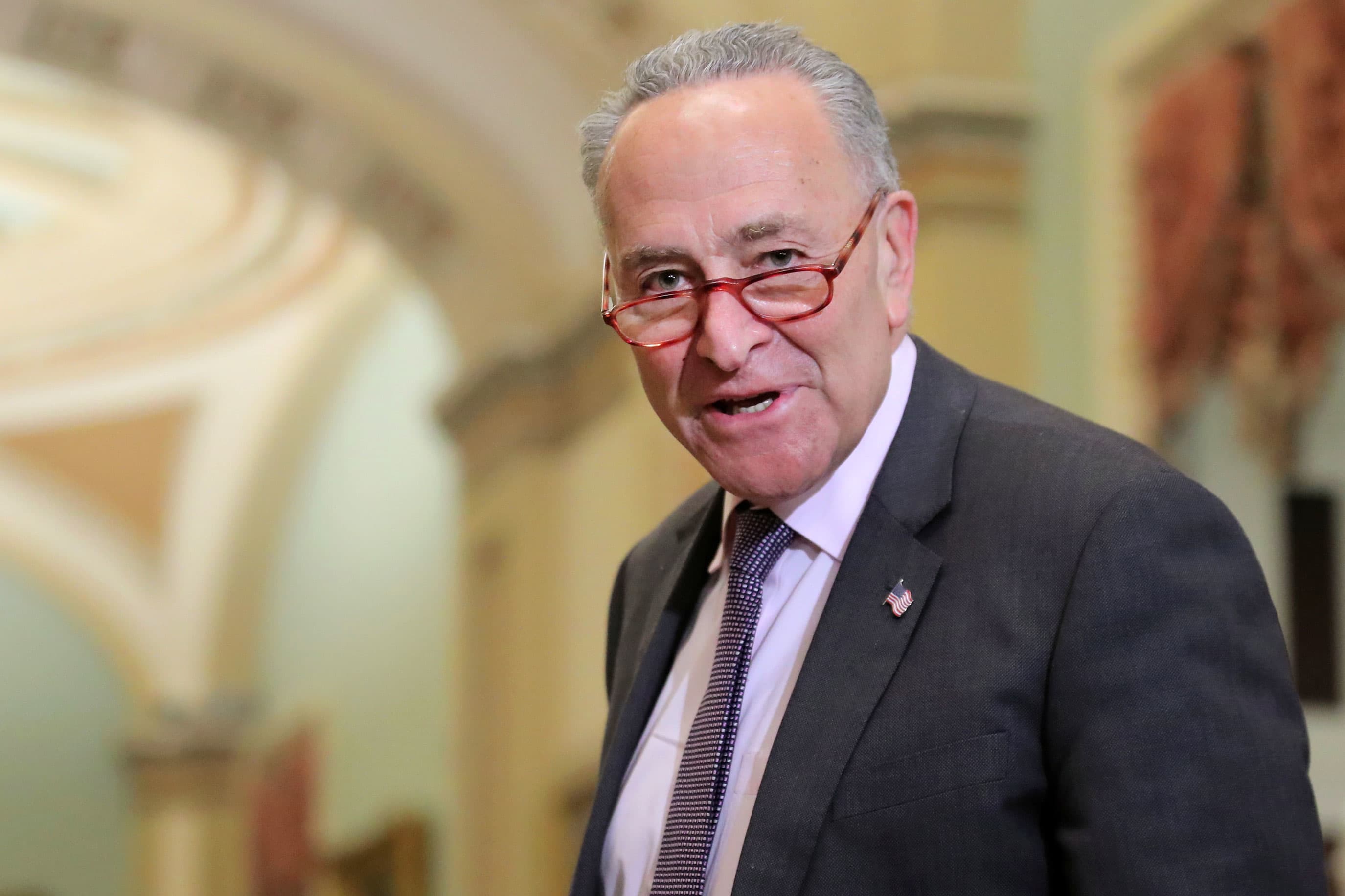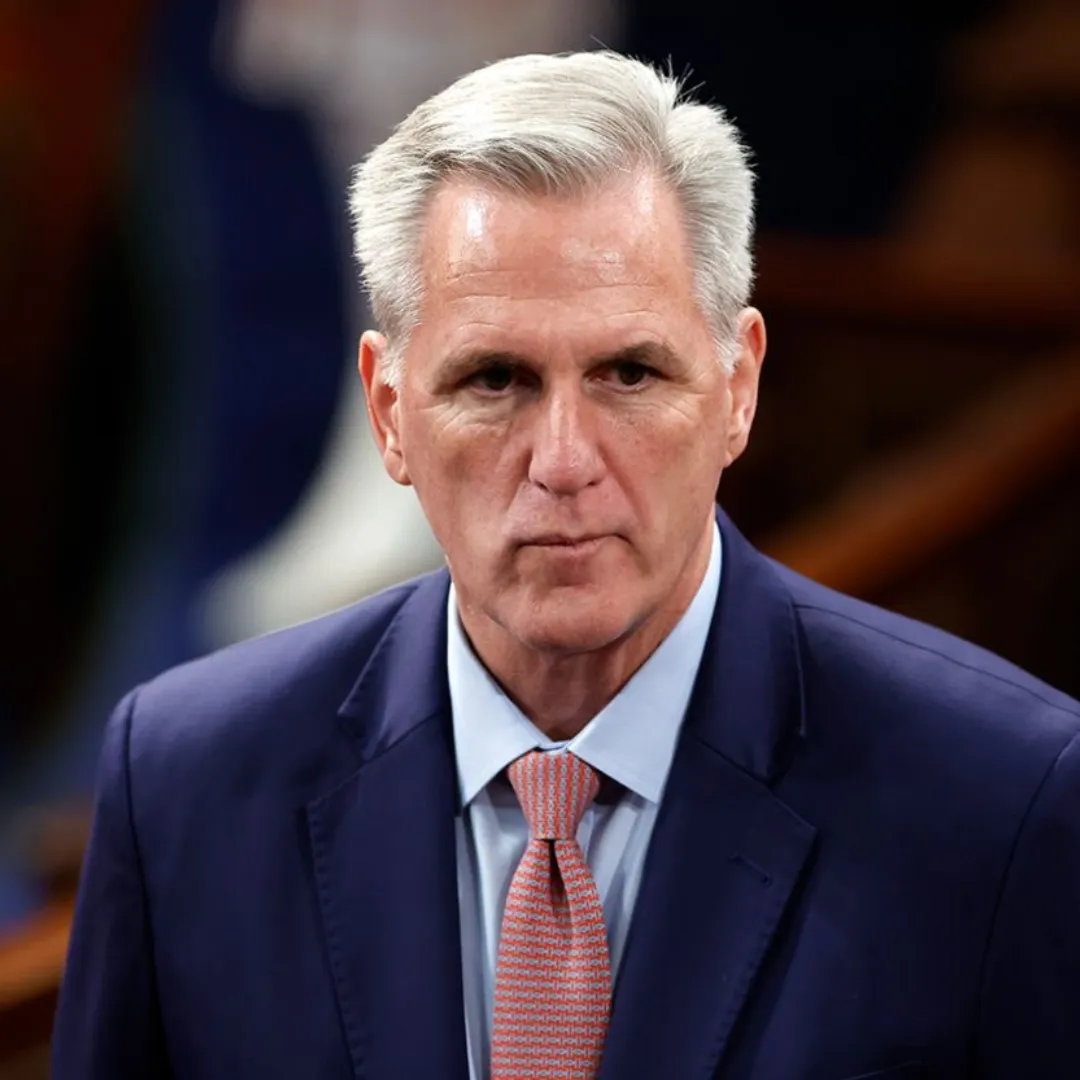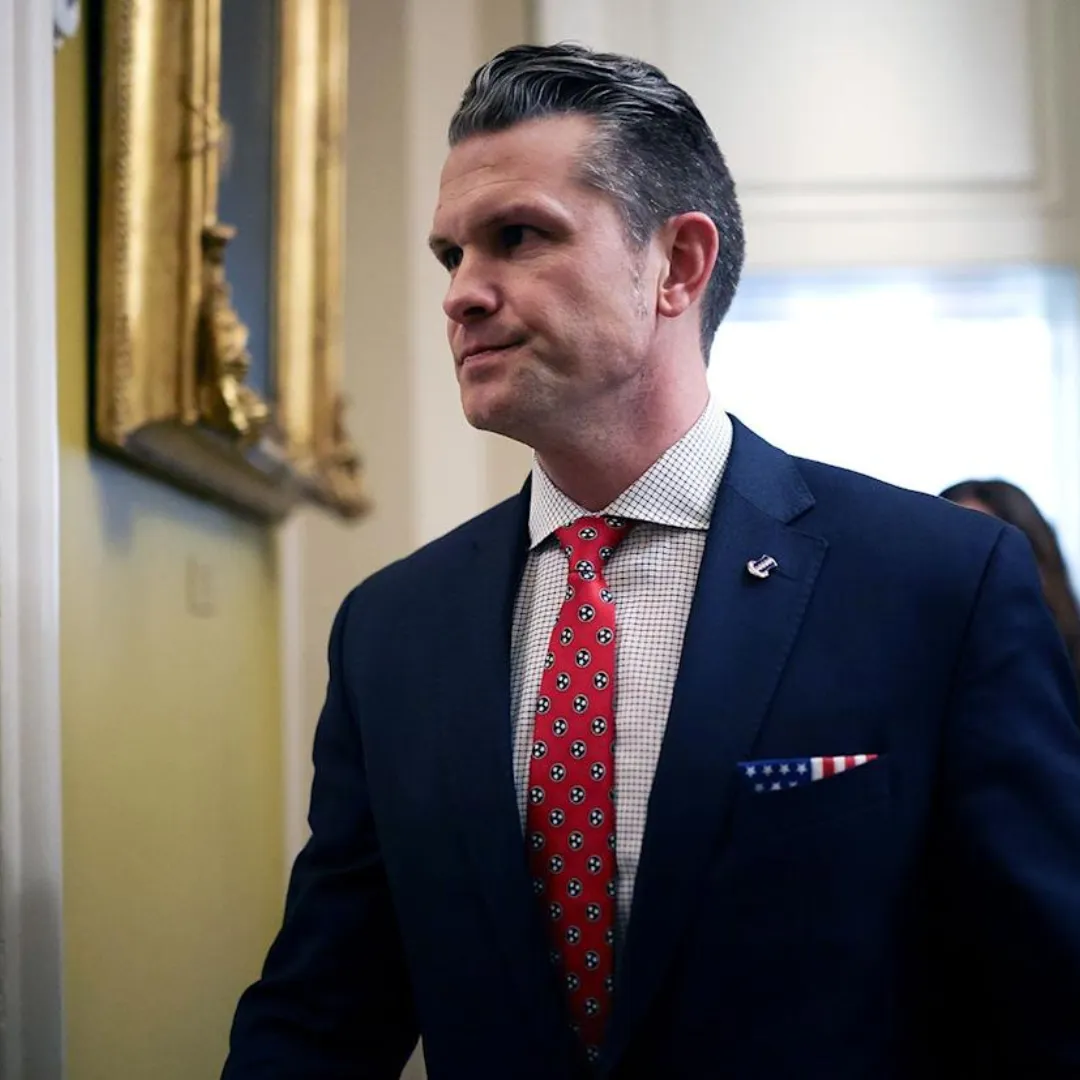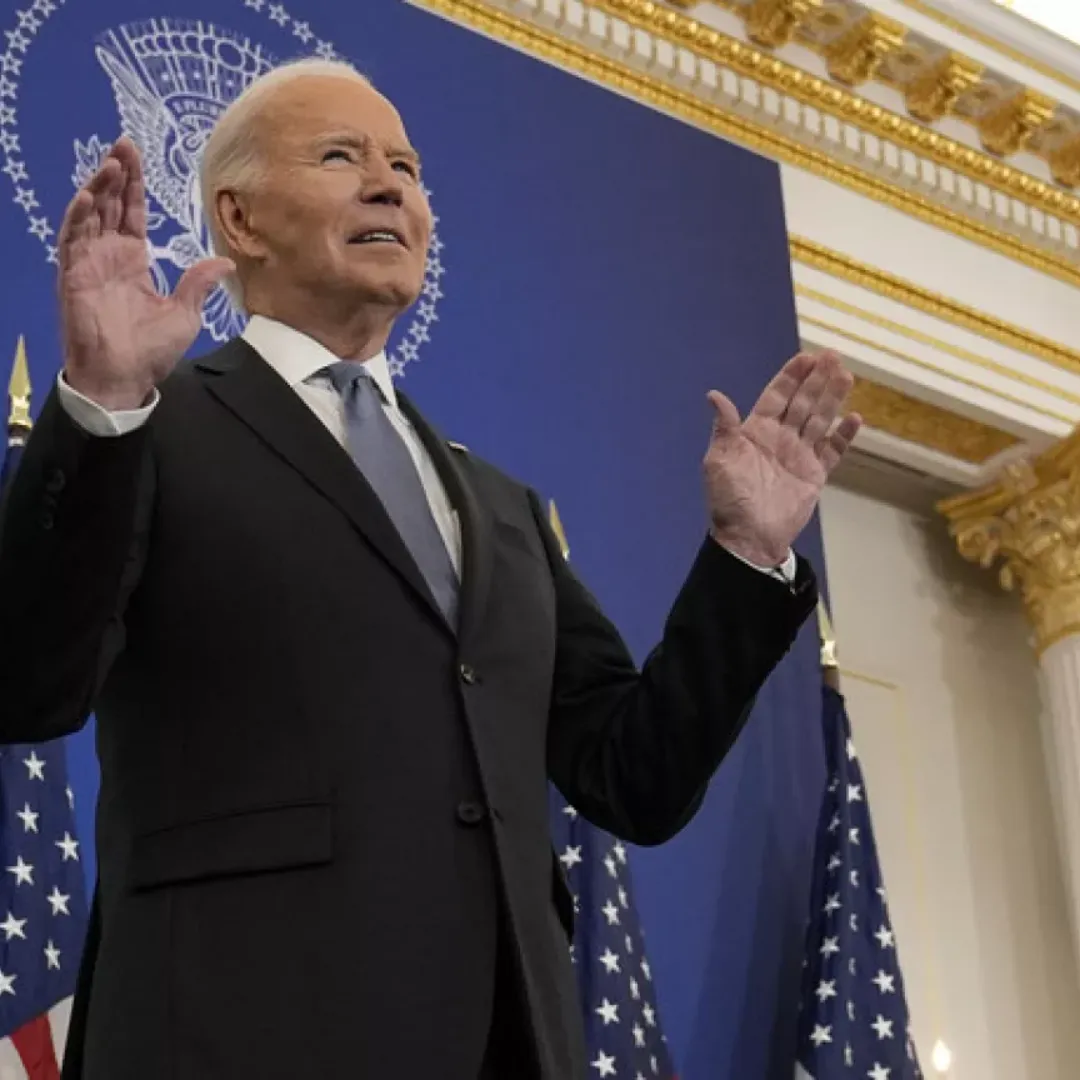Senate Democratic Leader Chuck Schumer delivered a scathing rebuke of the Trump administration’s latest agreement with China, claiming that Beijing once again outmaneuvered Washington in a deal aimed at de-escalating the ongoing trade war between the world’s two largest economies.
The criticism came hours after Treasury Secretary Scott Bessent and U.S. Trade Representative Jamieson Greer announced that the United States and China had reached a temporary compromise that would slash reciprocal tariffs and establish a new framework for ongoing negotiations.
Under the agreement, both countries will suspend previously planned tariff hikes for a 90-day period, with the United States lowering its tariffs on Chinese imports from 145 percent to 30 percent and China cutting its duties on American goods from 125 percent to 10 percent.
The announcement was met with a positive response from financial markets, with the Dow Jones Industrial Average jumping nearly 1,000 points, or 2.2 percent, and the S&P 500 and NASDAQ gaining 2.5 percent and 3.4 percent respectively. But the political reaction in Washington was far more divided, with Schumer emerging as the most vocal critic of the move, accusing President Trump of inconsistency, weakness, and strategic confusion.
In a post on the platform X, formerly Twitter, Schumer wrote, “Sadly, it looks like China once again got the better of Trump. Another example of Trump chaos. He has one policy one day, one the next. Who knows what it’ll be tomorrow.”
His remarks echoed broader concerns within the Democratic caucus that Trump’s trade strategy has been incoherent and reactive, shifting unpredictably from confrontation to compromise without delivering clear gains for American workers or businesses.
According to Chinese officials, the deal includes the establishment of what they termed a “trade consultation mechanism” designed to serve as a permanent channel for resolving future disputes and avoiding further escalation.
The mechanism, while vaguely defined, is being portrayed by Beijing as a diplomatic victory and a stabilizing step forward, while U.S. negotiators have framed it as a necessary pause to allow for more structured dialogue in the months ahead.
However, critics of the administration have argued that the dramatic reduction in tariffs amounts to a unilateral concession that provides China with economic relief without extracting meaningful policy reforms or commitments in return.
The Trump administration, meanwhile, has insisted that the agreement marks progress and reflects a deliberate choice to de-escalate tensions in the interest of global economic stability. In a joint statement, Bessent and Greer argued that the deal will protect American consumers from rising prices while creating space for deeper negotiations on intellectual property protections, currency practices, and structural reforms within the Chinese economy.
Yet those goals remain undefined and unenforceable under the current terms, and opponents warn that the administration is trading away leverage without securing anything concrete. The optics of the tariff reductions have also drawn intense scrutiny, as Trump has spent years positioning himself as a hardliner against China and touting high tariffs as a tool of economic patriotism.
The sharp cuts unveiled over the weekend appear to contradict that messaging and have given Democrats and some Republican skeptics fresh ammunition to question the administration’s consistency and strategic competence.
As markets rallied on the news of the truce, analysts warned that the short-term gains could be fleeting unless a more durable and enforceable agreement is reached in the coming months. Investors welcomed the reduction in trade uncertainty and the possibility of improved supply chain predictability, particularly in the tech and manufacturing sectors.
But the 90-day suspension is viewed as a temporary patch rather than a resolution, and any signs of renewed tension or failed negotiations could reverse the current optimism. In the background, geopolitical tensions between the two nations continue to simmer, with issues ranging from military posturing in the South China Sea to disputes over advanced semiconductor technology and human rights violations in Xinjiang remaining unresolved.
Critics argue that the administration’s narrow focus on tariff relief fails to address the broader strategic threats posed by China’s rise and risks sending a message of indecision at a critical geopolitical moment.
Within Congress, the reaction to the deal has exposed sharp divisions not only between parties but within them. While some Republicans have praised the tariff reductions as a necessary step to shield American businesses from further disruption, others have questioned whether the administration is retreating from its own trade objectives too easily.

Several lawmakers have called for greater transparency in the negotiation process and for congressional oversight over any future commitments made under the new trade consultation mechanism. Democrats, for their part, are preparing to use the agreement as a campaign issue, portraying it as emblematic of Trump’s failure to deliver on his promises of fair trade and American industrial resurgence.
They argue that despite years of confrontational rhetoric, the administration has little to show in terms of concrete victories and that the latest deal reflects desperation rather than strength.
As for China, the government has moved quickly to shape the narrative in its favor. State-run media have celebrated the agreement as proof that Chinese resilience and strategic patience are paying off, while officials in Beijing have emphasized that the concessions were mutual and part of a broader push for global economic harmony.
But behind the scenes, observers believe China sees the 90-day pause as a strategic win that allows it to stabilize its export economy and regroup in advance of further talks. For Trump, the challenge now is to prove that the temporary pause will evolve into a lasting and balanced agreement — one that goes beyond public relations and delivers measurable results for American industries, farmers, and consumers.
The broader implications of the deal remain uncertain, but the political consequences are already unfolding. With the next election cycle looming, Democrats are preparing to seize on the perception that Trump blinked under pressure and gave China what it wanted without demanding enough in return.
Schumer’s criticism, echoed by other senior Democrats, has set the tone for what is likely to be a sustained line of attack as both parties position themselves on the complex intersection of trade, national security, and economic diplomacy.

Whether this truce marks the beginning of a new chapter in U.S.-China relations or merely another pause in a chaotic and unresolved conflict remains to be seen. But one thing is clear — the political cost of every trade move will only rise from here.





